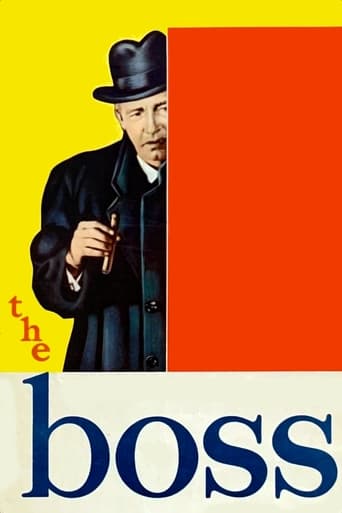RanchoTuVu
On returning home from fighting the first world war, Matt Brady (John Payne) reunites with his brother Tim (Roy Roberts) after leading a well staged parade of soldiers down the main street of his home town. As the day unfolds, so does the true character that John Payne memorably plays, a combination of ruthlessness and loyalty. Inheriting a crooked political machine with tentacles that extend statewide and eventually as far as Washington, from brother Tim, who dies of a heart attack when Payne refuses to divorce Lorry Reed (Gloria McGehee), whom he met in the closing hours of a rundown bar on the same night or early the next morning of the day of the parade, the story carries Payne's character to the heights of behind-the-scenes political influence gained through widespread corruption which represents business as usual. Forced into dealing with the mob because of losses incurred in the 1929 stock market crash, Payne's character forms an alliance with Johnny Mazia (Robin Morse), a character he had earlier kicked out of his political machine but who has now become a crime boss. Morse's character is classic, his scenes with Payne are tense. Payne's rise to the top is accompanied by his ostracism from the city's social elites who blackball him from their country club. It's a tough performance, shot in the darker hues of black, white and grey by stellar cinematographer Hal Mohr.
MartinHafer
This film currently has an IMDb score of 6.9 and I think this is a bit generous. I felt the film was an adequate time-passer and nothing more.This film is from John Payne's tough guy era--after he stopped playing pretty boys such as in musicals when he was younger and more handsome. Now middle-aged, many of his film were much grittier--and he made a bunch of noir films during the 1950s. Some were very good and often he was very good as a heavy, but here he comes off as almost funny--barking orders and giving a rather heavy-handed performance. In other words, he seems to be a caricature of a bad guy here and it never comes off as very believable. Some of this is surely due to the script. Regardless, the film is unconvincing and, at times, a bit silly. Not a terrible film, mind you--just not all that good.By the way, look at the machine gun scene. A group of guys are mowed down at point blank range and only the tiniest trickle of blood is seen on one victim's hand. Ha!
danielj_old999
In trying to jumpstart itself, this movie is somewhat heavy handed at the beginning, taking one notably big and questionable dramatic risk, but gains power slowly and turns into something of a monumental mini-epic with John Payne's changes of hair coloring registering his slow and merciless journey toward a godless end...what a performance, but it's not as good as Gloria McGehee's as the unwanted wife Lorry - which is about as good as you'll ever see from an actress on screen, period. Also great is Robin Morse as Johnny the Organization Man, a wonderful low key performance...where has this movie been all our lives? It's powerful, at times difficult to watch, brutal, and worth the ride.
smokehill retrievers
This was much better than the late-night potboiler I had expected. Payne was playing such a vile character that his performance seemed a bit forced at times, but I can see why he did this picture since the portrayal is a bit different from most of his roles He's up to the stretch, and should have done more dramatic work and fewer formulaic westerns & cop/investigator parts. More plots and subplots than we're used to in this period, and it all works. Dalton Trumbo's heavyhanded anticapitalism, thoroughly-corrupt-government motif is a bit much, but that was the popular theme amongst the leftie writers of the period, much as it is even today.
